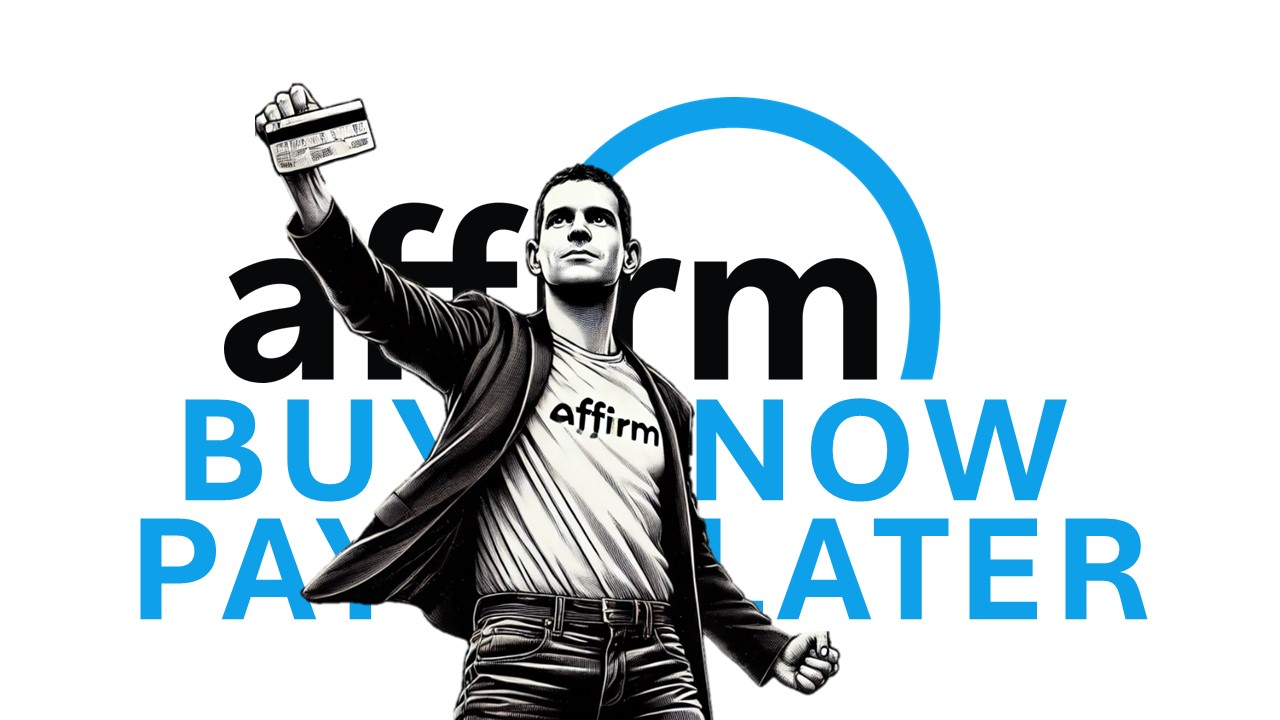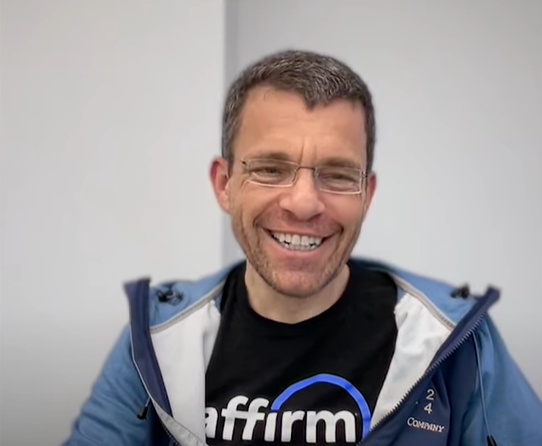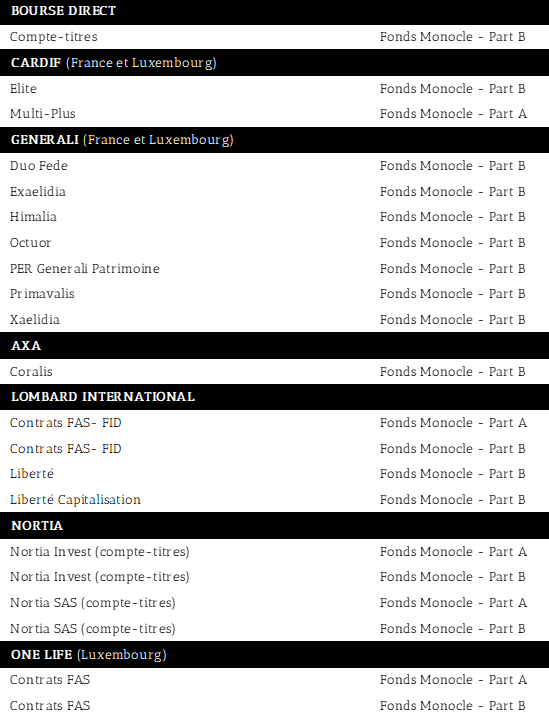
Ukrainian Express
19 June 2024
I wanted to write this post on the implications of elections for management. But after wandering on the subject, I remembered Buffett, who at the time of Trump's election, recalled that he had bought stocks under 14 different presidents, starting with Truman, and that it had done rather well for him.
So I'm going to tell you about a teenager who leaves his native Ukraine in 1992 to go and live in the United States. He was good at maths, but not good enough to understand the joys of American-style credit from the outset. Still a student, he took out a credit card, missed one or two payments and ended up with a FICO score in the 500s. The FICO score is the benchmark for credit ratings in the US. And a score of 500 means that every banker will open his pebble drawer as soon as he sees you.
Ten years later, our teenager is Chief Technological Officer of a company floated on the stock exchange. His stake is worth $18 million. But because of two missed payments ten years earlier, his FICO score is still 500. To buy a car, our guy had to ask one of his colleagues to co-sign for him.
The company in question is PayPal, which was floated on the stock exchange in February 2002 at a valuation of $800m. Six months later, EBay bought it for $1.5 billion.
Our man is called Max Levchin. He spent ten years at PayPal. He was in the company of Elon Musk (Tesla), Peter Thiel (Meta, Palantir) and the founders of YouTube, LinkedIn, etc...
In 2012, Max Levchin left PayPpal and, scarred by his ubiquitous credit history, decided to tackle the sector. He creates Affirm.
How does it work?
To make the financing of purchases more accessible and transparent for consumers, while offering merchants a payment method that can encourage sales. Affirm offers an attractive alternative to traditional credit systems: allow consumers to pay in instalments without interest or penalties. In return, merchants agree to pay commission to Affirm, which is more than offset by the profits from full-price sales.
For the user, Affirm's solution has three advantages:
- No interest on interest
- No late penalties
- By looking at your bank account, AFFIRM tells you whether or not you can afford this expense.
Max Levchin's objective is simple: to put VISA, MASTERCARD and AMERICAN EXPRESS stickers on every shop door where you see them today, he wants to add an AFFIRM sticker.
We're not there yet, but we're making progress: Affirm now has 20 million members. They have just launched the AFFIRM card, which already has 1 million users.
Its current market capitalisation is $9.5 billion. This is not an easy company to value. There are several sources of revenue, from merchants, interest on loans and the sale of loans to third parties. But if there's one person who can go and try to break the oligopoly of the system's dinosaurs, it's Max Levchin. He doesn't laugh much - the photo below is a rare piece; get straight to the point - nastily blew the nose of the Bank of America analyst on the last call who asked him for a forecast on the next quarter by telling him that the quarter was not his unit of account; and he's aiming high. Affirm's potential global market is not easy to define. The AWS cloud couldn't be included in an Amazon valuation at first, nor could Apple's iPhone. But perhaps we could say that people like Bezos or Jobs had the ability to do something great. I think Levchin has the same thing. We have 2% in the fund.
Rare photo of Max Levchin laughing - Source: YouTube
Market and portfolio focus
Behaviour:
The CAC 40 was hungover last week, falling by 6.2%. For our part, we avoided getting our feet tangled in the carpet, dropping 0.8%. We're pleased to be living up to our reputation of always keeping a close watch. For the S&P 500, it's business as usual, up 1.6%.
On the equities front, two names weighed heavily this week. Teleperformance got caught up in the CAC 40's whirlwind and cost us 30bps (which we should recover this week after its rebound). The same treatment was given to Pernod Ricard, with a dash of fear about China thrown in for good measure: 20bps impact for us. In the other direction, Tidewater returned 30bps following the announcement of its inclusion in the S&P 600.
We end the week with a gross equity exposure of 60% (net 42%) and a corporate credit and US short-term interest rate exposure of 28%.
Lines:
Naturally, we like a good shake-up. There's no reason not to take advantage of the fall in the CAC 40: we've put a ladle back into LVMH (4%), which we exited at €820 in February.
Daring OK, but we remain cautious. We know that historical valuations are at record highs. We continue to ride with confidence: we have taken over a line of S&P 500 Puts expiring in October at 4,900. This should give us plenty of peace of mind.
In terms of allocation, the major movement is in the USD: if things go badly in France with the elections, the USD will act as a safe haven. Usually, we hedge our USD exposure to achieve a net exposure of less than 10%, but now we've gone to 40% USD. Good airbag.
Two adjustments to our action lines. Firstly, we took out Braze. Digging deeper, we think that the CEO is not of the calibre of Levchin and that their solution is not as revolutionary. Secondly, we reduced our Tidewater line to 4% after significant sales of shares by insiders.
On credit, we sold our line of US long rate futures taken up at the beginning of last week. Rates moved quickly and we quickly reached our exit level. We pocketed a 30bps contribution.
Finally, we exited the Match 2028 bond. Its yield had fallen below our investment target (7%), no longer justifying the risk taken on an individual line.
See you next time
Charles
Disclaimer
This presentation is a promotional document. The content of this document is communicated by and is the property of Monocle Asset Management. Monocle Asset Management is a portfolio management company approved by the Autorité des Marchés Financiers under number GP-20000040 and registered with the ORIAS as an insurance broker under number 10058146. No information contained in this document should be construed as having any contractual value. This document is produced for information purposes only. The prospects mentioned are subject to change and do not constitute a commitment or a guarantee. Access to the products and services presented here may be subject to restrictions for certain persons or countries. Tax treatment depends on individual circumstances. The fund mentioned in this document (Monocle Fund SICAV) is authorized for marketing in France and possibly in other countries where the law permits. Before making any investment, it is advisable to check whether the investor is legally entitled to subscribe to the fund. The risks, costs and recommended investment period of the funds presented are described in the KIDD (key investor information documents) and the prospectus, available free of charge from Monocle Asset Management and on the website. The KIDD must be given to the subscribers before the subscription. Past performances are not a reliable indicator of future performances. Monocle Asset Management cannot be held responsible for any decision taken or not taken on the basis of information contained in this document, nor for the use that could be made by a third party. The investor may lose all or part of the amount of capital invested, as the funds are not capital guaranteed.
To unsubscribe or for any information request, you can email us at monocle@monocle.lu

